Media

The Future of
Hong Kong Economy
September 28, 2022
Press Release
“Conference on The Future Hong Kong Economy” explores
the opportunities of Hong Kong’s economic and policy development
(28 September, 2022, Hong Kong) The “Thought Leadership Conference Series: The Future of Hong Kong Economy”, organised by HKU Business School, and co-organised by the Hong Kong Institute of Economics and Business Strategy, and Institute of Digital Economy and Innovation and Asia Global Institute, concluded successfully today. The conference aims to serve as an exchange platform to foster discussion among well-regarded scholars, policy makers, business leaders and the community.
This year, the conference invited Mr. Paul Chan Mo-po, Financial Secretary of the Government of the Hong Kong Special Administrative Region, Dr. Tao Zhang, Chief Representative for Asia and the Pacific, The Bank of International Settlements, Former Deputy Governor of the People’s Bank of China Former Deputy Managing Director of the International Monetary Fund (IMF), and Professor Sir Christopher Pissarides, 2010 Nobel Laureate in Economics Sciences and Regius Professor of Economics, London School of Economics and Political Science as keynote speakers, and joined by outstanding leaders in the public and business sectors to discuss and analyse the future economic development of Hong Kong. Five key topics surrounding the latest local issues were discussed, including Hong Kong’s future as Asia’s financial hub, Hong Kong’s new economy, Northern metropolitan development, Land and Housing Policy and Hong Kong’s overall economic strategies.
Professor Richard Wong, Provost and Deputy Vice-Chancellor of The University of Hong Kong, Chair of Economics & Philip Wong Kennedy Wong Professor in Political Economy, and Director of Hong Kong Institute of Economics and Business Strategy, in his welcoming remarks, said, ‘Hong Kong’s economy is severely impacted by both internal and external factors. Internally, in addition to still tight immigration requirements and severe pressure on housing, the city is also facing labour shortages and aging population. As an open economy, economic activities stemming from external connections have been greatly affected in the past three years. This year’s conference has become even more crucial, which aims to provide timely suggestions to the government and economic policies, and offer insights into the future development of Hong Kong’s economy.’
The Honourable Paul Chan Mo-po, Financial Secretary of the Government of the Hong Kong Special Administrative Region said, ‘I am glad to note that just a few days before this conference, HKU Business School released its Hong Kong Economic Policy Green Paper 2022, which presents a range of topical analyses and policy recommendations on Hong Kong’s economy, providing much food for thought and discussion. The new-term Government has put I&T, financial centre development, land and housing supply and talent attraction as our top priorities. Looking at the directions we are heading and the work done, we remain highly optimistic about our future.’
Dr. Tao Zhang, Chief Representative for Asia and the Pacific, The Bank of International Settlements said, ‘The BIS is committed to be a steadfast partner for Hong Kong as the city continues its journey to strengthen its role as an international financial centre, and build a better future for its economy.’
Professor Sir Christopher Pissarides, 2010 Nobel Laureate in Economics Sciences said, ‘Hong Kong has the fundamentals to successfully adapt to the post-covid global economic reality and flourish as an international business and logistics centre, with a vibrant high-tech sector that will drive good job creation for its people.’
Professor Hongbin Cai, Dean and Chair of Economics of HKU Business School concluded the achievement of the conference and said, ‘HKU Business School has been dedicated to conducting economic policy research over the years. We are fully engaged with China and truly international, and are entering a stage of rapid development. Today we had an insightful and fruitful discussion, fostering interaction among leaders in the community. Hong Kong has its unique strengths, and with unlimited potential and unbounded possibilities. Let’s work together towards a bright future of Hong Kong economy.’
HKU Business School has been committed to analysing Hong Kong’s economic environment and policy issues through professional knowledge and distinguished research. Our faculty members have recently published the “Hong Kong Economic Policy Green Paper 2022” and held the 2nd Conference on The Future Hong Kong Economy, after its inaugural edition last year, offering recommendations on Hong Kong’s economic development.
– END –
About HKU Business School
Established in 2001, HKU Business School is the youngest and most dynamic member of The University of Hong Kong (HKU). The School strives to nurture first-class business leaders and foster academic and relevant research to serve the needs of Hong Kong, China and the rest of the world in the new Asia-led economy. As a top international business school in Asia, the School engages leading scholars from all corners of the globe and they instil in students global knowledge with an Asian perspective. The School attracts top students from Hong Kong and beyond, recording the highest proportion of non-local undergraduate students amongst all Faculties at HKU.
HKU Business School offers a full spectrum of business education, and has achieved remarkable growth in faculty strength and research capability in the last two decades. The School ranks Asia’s No.1 in UTD Research Rankings in 2021; its full-time MBA has been ranked Asia’s no. 1 in the World MBA Rankings released by the Economist Intelligence Unit (EIU) for 10 years. The School has well-established and strategic partnership with world renowned universities and corporate partners, providing market-oriented content, superior learning and instrumental resources for our students.
To better serve our students and alumni in various cities and regions and facilitate collaboration opportunities with business communities around the globe, HKU Business School has established a unique international network that extends to Beijing, Shenzhen, Vietnam and Tel Aviv. The School is well-positioned to be a leading, globally-impactful academic institution of business and economics.
HKU Business School is fully accredited by the European Quality Improvement Systems (EQUIS) and the Association to Advance Collegiate Schools of Business (AACSB).
Visit us at https://www.hkubs.hku.hk/



